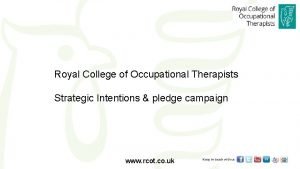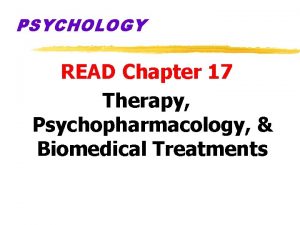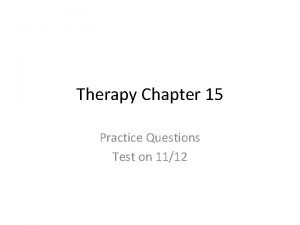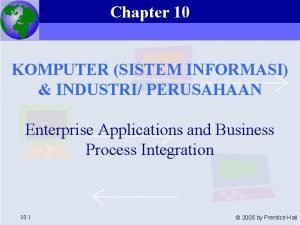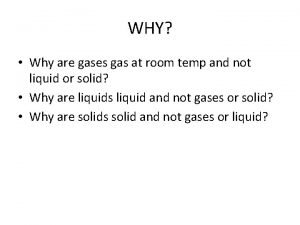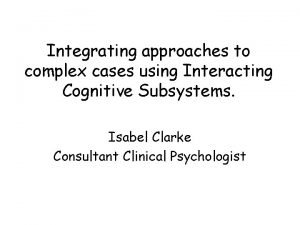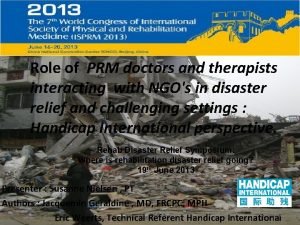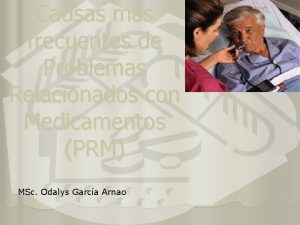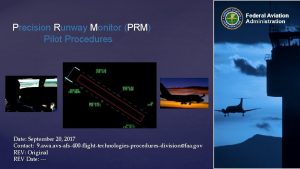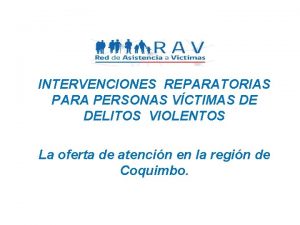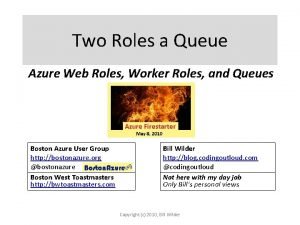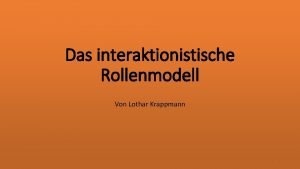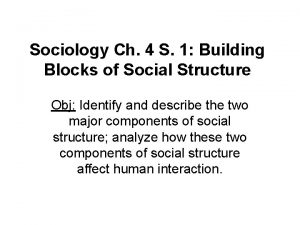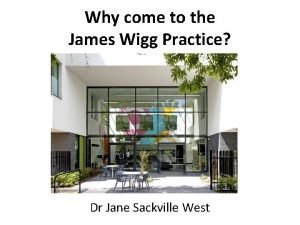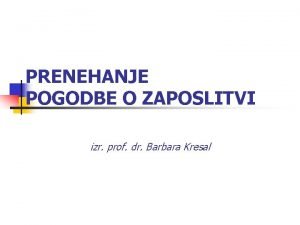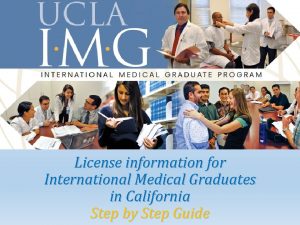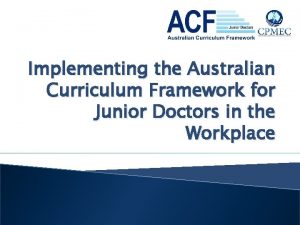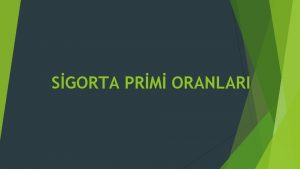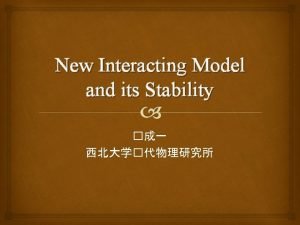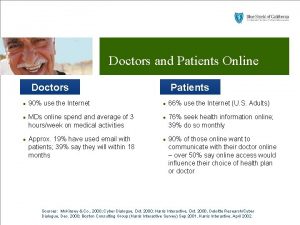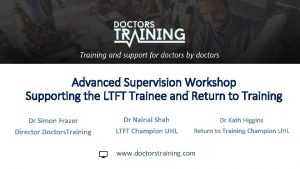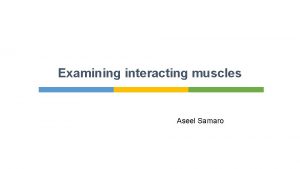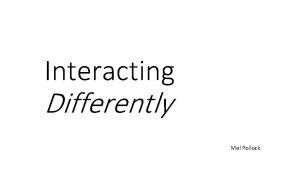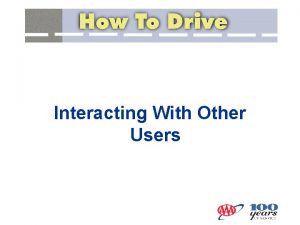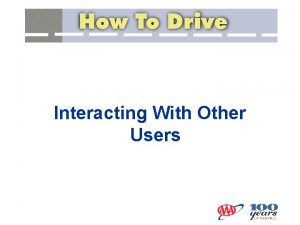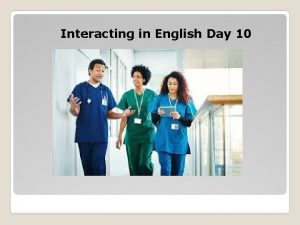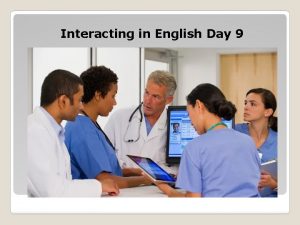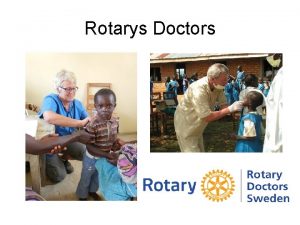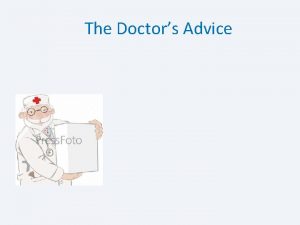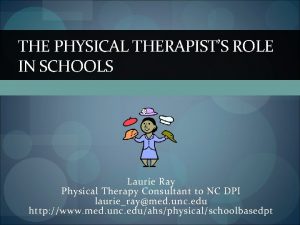Role of PRM doctors and therapists interacting with






















- Slides: 22

Role of PRM doctors and therapists interacting with NGO's in disaster relief and challenging settings : Handicap International perspective. 19 th June 2015 Presenter : Pete Skelton , PT Authors : Jacquemin Geraldine , MD, FRCPC, MPH Eric Weerts, Technical Referent Handicap International 1

Rehabilitation advisor to the UK Emergency Medical Team. Medical Anthropologist and Physiotherapist Lived and worked for several years in West Africa and India Emergency responses in Haiti, Libya, Jordan, Philippines, Iraq, Gaza, Nepal 2

Needs for Rehabilitation Specialists ØInterdisciplinary approach in emergency context must start early as possible ØTraining of local health and rehabilitation staff ØAnticipation of long term needs of severely injured survivors in disaster context 3

Handicap International’s work in disaster context 4

Rehabilitation in Emergencies 5

Common Roles in NGOs Ø As a clinical member of an NGO Medical or surgical Team Ø As part of an INGO rehabilitation or disability team- clinical, training, advocacy… Interacting with the NGO system Ø Supporting a National Association Ø As an individual or team, at the request of a local health facility or organization 6

Why through established NGOs? Ø Longstanding pre-existing partnerships or relationships with local organizations Ø Logistics and security frame work & expertise Ø Where possible work through local partnership by local teams Ø Cannot just focus on rehabilitation – requires integrated approach of basic needs, protection etc, and integration into wider response Ø More likely to be sustainable 7

What about FMTs Not covered in detail today Can be either governmental or nongovernmental UK EMT includes competence based training of UK medical and rehabilitation staff, both clinical and humanitarian. Come Sunday to learn more! 8

Basic Roles for PRM • Act as a link between surgical/acute and rehab teams • Ensure global and long term approach • Assess in-depth the medical aspects of rehabilitation medicine • Transfer of knowledge… 9

Role of PRM in the transfer of knowledge 10

• Participate in training of rehab team and non rehab staff • Direct assistance in care techniques not known by the mainstream trauma team • Management of complex trauma cases 11 • Assist team in diagnosis of complicated cases

Needed profile and skills of PRM 12

Skills and knowledge PRM with practical record in the field of severe trauma : amputations , neuro trauma , poly trauma Senior provider of knowledge and insight in rehabilitation medicine Team management skills (? ) Understanding and skills of project / activity management (? ) Ability to connect the missing links in the clinical information that is available to them at the moment of intervention and within the context Ability to enhance and predict as early as possible the needed rehabilitation pathway for the patient and patient groups. +/- 13

Skills and knowledge – cont. +/For the continuum of care the PRM needs the ability to be the key provider of information, background information and supervision of this key process. Personal skills and attitudes that take into account and respect the customs and local culture the PRM is working in. Accepting that PRM skills and roles may not always be well understood and seen as a primary need in the rehabilitation process of that specific cultural, social and clinical setting. 14

Plus… • Experience of working cross culturally (ideally in the culture of deployment) • Experience of working in austere environment • Experience of training • Understanding of social model of disability • Understanding of humanitarian architecture • Previous experience of humanitarian response (? ) 15

Personal Skills • A mindset and attitude resilient towards insecure working environment • Need for prioritizing personal security (? ) • Respect for operational and logistical procedures. • Ability to cope with varying workloads • Flexibility in the team approach 16

Challenges encountered (1) Experience and local board accreditation in management of: ØWork with plaster casts and wound debridement ØAcute SCI assessment and management, inc ‘’hands on‘’ quality of neurogenic bladder management (water column cysto , bladder pharmacopeia) ØFunctions in ICU setting ( suction , wound care follow-up , small surgery procedures ). This might be not well accepted according to the inter-professional standards. 17

Challenges encountered (2) • To provide direct technical assistance in constituting adapted protocols that allow physical rehabilitation programs to function optimally: pain protocol, anti biotherapy, infection prevention, continence management for neurogenic conditions, comprehensive wound care … Common professional standards dictate that some of these skills are to be performed by other specialists but nevertheless needed in emergencies 18

Challenges encountered (3) Ø There is a need to define what skills and procedures PRM can perform in these exceptional circumstances. Emergencies are not an excuse for working outside of scope of practice. Ø Handicap International recognizes this ‘’grey zone‘’ and would welcome positioning from ISPRM in this field 19

Examples of PRM assignements within Handicap International teams 20

• Assessment of needs mission in Emergency context (Haiti ) • Acting team leader of rehabilitation program in Trauma hospital (Syria) • Trainer of special rehabilitation skills to doctors , surgeon , nurses, PT, OT (Vietnam) • Adviser on training curriculum for Therapist’s specialities (Haiti, Cambodia) • Monitoring and evaluation of activity outcomes with complex trauma : SCI , burn wounds, multiple trauma (Congo RDC) • Drafting field protocols for disaster preparedness (Nepal) 21

Thank you 22
 Royal college of occupational therapists
Royal college of occupational therapists Client centered therapists try to appreciate
Client centered therapists try to appreciate Which of the following therapists would most likely
Which of the following therapists would most likely All crm packages contain modules for prm and erm.
All crm packages contain modules for prm and erm. Interacting with coworkers
Interacting with coworkers Interacting molecules or ions
Interacting molecules or ions Interacting cognitive subsystems
Interacting cognitive subsystems Prm vs. crm
Prm vs. crm Prm sename
Prm sename Prm specialist
Prm specialist Prm 3
Prm 3 Precision runway monitoring (prm) is
Precision runway monitoring (prm) is Prm rukan
Prm rukan Web role in azure
Web role in azure Role making krappmann
Role making krappmann Statuses and their related roles determine
Statuses and their related roles determine James wigg practice kentish town
James wigg practice kentish town Trinity doctors
Trinity doctors Go 354 tamil nadu
Go 354 tamil nadu Barbara kresal
Barbara kresal Doctors license number
Doctors license number Doctors heaton moor
Doctors heaton moor Australian curriculum framework for junior doctors
Australian curriculum framework for junior doctors
